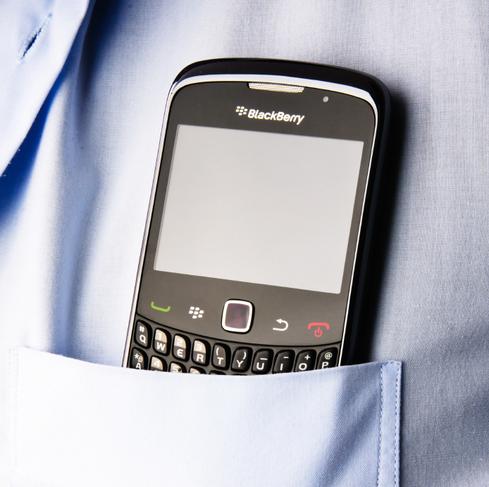BlackBerry is threatening to leave Pakistan within the next month if the government keeps insisting on backdoor access to the company's messaging service.


8 iPhone Security Apps To Keep Your Data Safe
8 iPhone Security Apps To Keep Your Data Safe (Click image for larger view and slideshow.)
In a move that may have worldwide implications on mobile technology and security, BlackBerry announced Monday that it would rather leave Pakistan than comply with the government's order to install security backdoors into the company's encrypted services.
BlackBerry, which is based in Canada, announced its decision Nov. 30 in a blog post. While the company was prepared to leave immediately, the Pakistani government announced that it will not require compliance for another 30 days, which pushes the deadline to Dec. 30.
BlackBerry noted on its website that it will remain in Pakistan for the month.
The Pakistan Telecommunications Authority (PTA) chairman Syed Ismail Shah, told media outlets on Monday: "The level of access is still under discussion. We can extend the deadline and they can continue to work until then."
Pakistani media explained that the government's demand for backdoor access to all BlackBerry messages is a response to terror attacks, specifically: "Repeated terror attacks in Pakistan have compelled the government to monitor all domestic phone lines and Internet traffic."
In the original blog post, Marty Beard, chief operating officer at BlackBerry explained the conflict:
In July, the Pakistan Telecommunications Authority notified the country's mobile phone operators that BlackBerry's BES servers would no longer be allowed to operate in the country starting in December "for security reasons." The truth is [was] that the Pakistani government wanted the ability to monitor all BlackBerry Enterprise Service traffic in the country, including every BES e-mail and BES BBM message. But BlackBerry will not comply with that sort of directive. As we have said many times, we do not support "back doors" granting open access to our customers' information and have never done this anywhere in the world.
Although the PTA claimed it was solely focused only on gaining access to BES, BlackBerry decided that the demands were too much and too broad and the company decided to withdraw its consumer business from the country all together.
"Pakistan's demand for open access to monitor a significant swath of our customers' communications within its borders left us no choice but to exit the country entirely," Beard added in the post.
Two years ago, BlackBerry was not so principled. The company allowed the Indian government into its consumer messaging servers, but withheld access to its enterprise servers.
[Read about BlackBerry's Priv smartphone.]
It may be that the PTA and Pakistani government is looking for a deal similar to the one that BlackBerry cut in India with only partial access allowed. However, in the post-Snowden landscape, such a deal would undermine the company reputation for providing secure communications.
It's not just Pakistan or India where the issues have sparked fierce ideological battles over privacy and security. In the US, President Obama recently announced that his administration would not seek backdoors for encryption methods on smartphones, but the federal government could seek alternatives down the road.
The terror attacks in Paris have also sparked renewed debate in the US, as well as Europe, about tracking information that people have stored on their smartphones.
As for BlackBerry, the withdrawal from Pakistan might not affect the company's fortunes that much. The company has watched its market share shrink in North America, as well as around the world, in no small part due to competition in emerging markets from Android and Apple's iPhone, according to Gartner's latest figures.
About the Author(s)
You May Also Like







